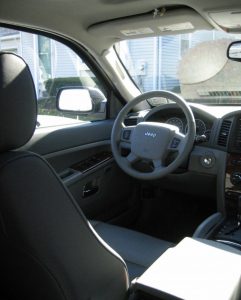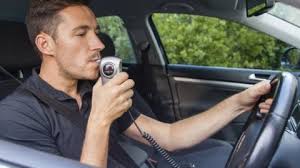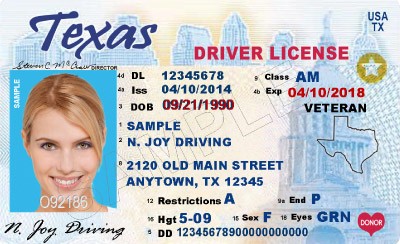Texas DWI ALR License Suspension, Revocation, and Disqualification
 There are a variety of drivers license suspensions that can impact a person’s ability to apply for or renew their license. These include suspensions for actions that did not even occur in Texas! That’s right, a suspension in another state can (but won’t always) impact a person’s ability to drive in Texas. Typically, for Texas DWI arrests, this comes in the form of an ALR suspension. But, DPS can also suspend a person’s license for not completing a DWI education course while on probation, for example.
There are a variety of drivers license suspensions that can impact a person’s ability to apply for or renew their license. These include suspensions for actions that did not even occur in Texas! That’s right, a suspension in another state can (but won’t always) impact a person’s ability to drive in Texas. Typically, for Texas DWI arrests, this comes in the form of an ALR suspension. But, DPS can also suspend a person’s license for not completing a DWI education course while on probation, for example.
For some of these suspensions, a person may need to petition for an ODL in order to drive. Unfortunately, getting an ODL is not always an option. At times, fixing the problem may be as simple as paying a reinstatement fee or sending a document to DPS. At others, DPS may require the person to obtain SR22 or have an interlock installed in their car. For some of the latter situations, the “suspension” runs until DPS receives notice that the court no longer requires interlock.
However, DPS can be notoriously disorganized and may somehow “forget” to process paperwork. We have had a few clients who finish probation just to receive a “notice of cancellation” from DPS saying they need to have an interlock restriction on their license. This can lead to a moment of panic when they think they’re finally done with everything just to have the stress thrown back in their face.
The sections below will give some brief information about the different types of “suspensions” that DPS may impose. This post won’t get into the deep details of each and every type. But, if you see a specific action listed on the DPS Eligibility site, contact us so we can walk you through the exact action listed. However, you can find minor information about that exact action on this handy Driver’s License Actions chart.

License Revocations
A revocation is “indefinite” until DPS receives compliance. This means that the revocation has no set end date. It can go on forever unless the person sends (and DPS processes) the paperwork. Oddly, getting and ODL is possible for a select few of the revocations, including revocations for failure to send certificate of completion of a DWI education program. The reinstatement fee is generally $100, and SR22 is not required for the revocation (but WILL be required to get an ODL).
Departmental Suspensions
These suspensions do not require any court action. This means that there is no court ordering DPS to issue a suspension. This usually occurs when a person has an out of state conviction and license suspension, or when a person drives on an invalid license. Getting an ODL is possible for every departmental suspension, and the reinstatement fee is $100. None of these suspensions require an interlock. But, as with SR22, it may be a requirement to get an ODL.
A person may also request a hearing on any departmental suspension, but there is a risk. If they do not request a hearing, the suspension is 90 days. But, if they do request a hearing and the judge decides to uphold the suspension, the suspension may last up to 1 year. The one exception is if the person has an out of state conviction for driving a commercial vehicle while disqualified (suspension is 1 year regardless).
License Disqualifications (Commercial Licenses)
These are a HUGE problem because they can literally put people out of a job. Most disqualifications last 1 year, and may even permanently disqualify a CDL holder. There is NO ODL OPTION for disqualifications. In other words, an ODL does not allow a person to drive commercial vehicles. What makes these an even bigger issue is that DPS may disqualify a person even if they were in their own car if the disqualification is based on alcohol. In very limited circumstances, a person may request a hearing on the disqualification. There are no SR22 or interlock restrictions, and there is no reinstatement fee. Commonly, a disqualification means that a person must completely re-apply for a CDL, including passing a driving test.
ALR License Suspension
This is the big one for DWI arrests. These can be confusing because they are based DWI arrests and have very little (if any) relation to the criminal case. In other words, a reduction of charge from a DWI to an obstruction does not matter for ALR purposes. As long as the arrest was for DWI, DPS does not care if the ultimate charge, if any, was DWI. Like with other suspensions, there are no SR22 or interlock requirements as part of the suspension. However, SR22 is ALWAYS required for an ODL, and an interlock restriction is up to the judge’s discretion. Some counties require interlock for ALL ODLs, while others tend to only require interlock for minors, arrests involving accidents, and for second (or more) offenses. The reinstatement fee for an ALR suspension is $125 (except for CDLs).
Like with some other suspensions, a person may request a hearing on the suspension. Unlike those other suspensions, however, an ALR hearing occurs at the State Office of Administrative Hearings (SOAH). Non-ALR hearings generally take place in the Justice Court closest to the requesting person. Regardless, all hearings tend to heavily favor DPS. This is why our ALR Lawyer will contact you ahead of the hearing to make sure they are prepared to get an ODL if needed.
Oddly, as seen on the driver’s license suspensions, if a DWI arrest occurred while driving a commercial vehicle, the driver may request a non-SOAH hearing. But, if the DWI arrest occurred in a personal vehicle, the CDL holder does not have the option to request a separate hearing for his CDL.
Mandatory License Suspension
These are . . . weird, to say the least. These suspensions are “automatic,” which means they happen without a court order or without DPS taking independent action. There is no option for an administrative hearing on the suspension, and not independent interlock requirement. Most mandatory suspensions do, however, have an independent SR22 requirement. This means that a person must have SR22 during the suspension and must pay the reinstatement fee ($100). The only mandatory suspensions that do not have a reinstatement fee or an SR22 requirement are for offenses by juveniles or minors (becomes more of a “denial” rather than a “suspension”).
SR License Suspension
These are suspensions based on insurance (e.g., driving without liability insurance). Though somewhat self-explanatory, these suspensions all have an SR22 requirement (or effective alternative). The reinstatement fee is $100, and there is no independent interlock restriction. A person may apply for an ODL for all but one of these suspensions (“cancelled insurance”), and there is no option to request an administrative hearing (except if the suspension is based on an accident). These suspensions tend last indefinitely until DPS receives compliance.
License Denial/Cancellation
No need to go into too much details on these since they are somewhat self-explanatory. A denial means that DPS will refuse to issue or renew a driver’s license. A cancellation means that the driver’s license a person currently has no longer allows the person to drive. An “interlock required” cancellation, for example, means that the person has a valid driver’s license (no suspension or disqualification), but must add a restriction to that license that says they can only drive cars that have an interlock installed.
Out-of-State Enforcement Actions
These are interesting because they (usually) do not impact a person’s Texas driver’s license. But, they will still show up on their driving record. In other words, these “enforcement actions” only affect them if DPS decides to take action.
Mimi is listed on several “top” directory listings such as DWI Lawyers for Wise County, DWI Lawyer Tarrant County, DWI Lawyer Dallas County, DWI Lawyer Collin County, DWI Lawyer in Johnson County and DWI Lawyer Parker County. Mimi is a caring DWI Lawyer in DFW, She is also involved in the Texas Tech School of Law foundation and enjoys using the skills she has developed to give back to the community.


 Here is some Texas ALR Administrative
Here is some Texas ALR Administrative  Hate having an interlock? Want to get it off?
Hate having an interlock? Want to get it off?
